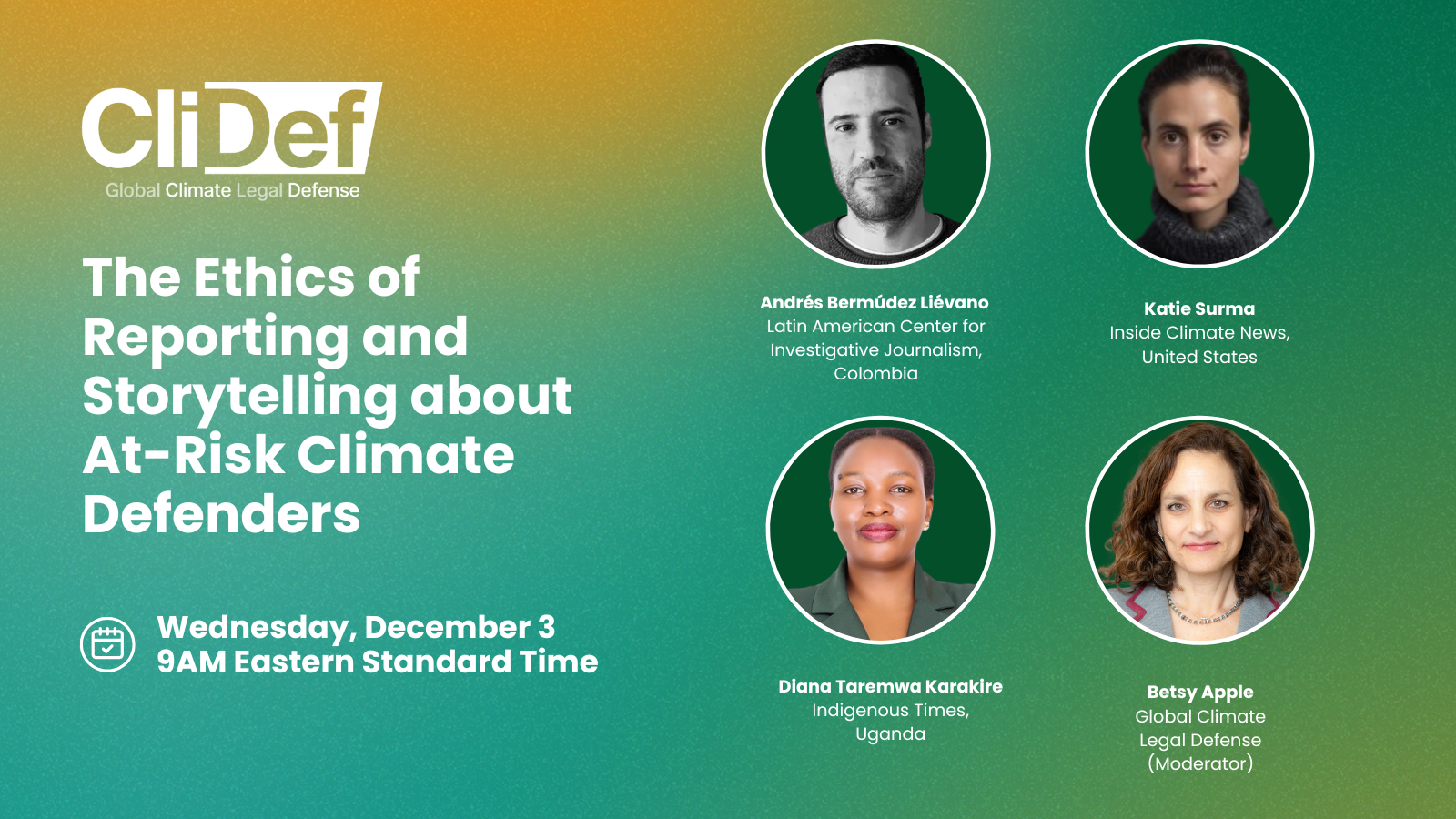Media and communications professionals play an important role in highlighting the experiences of land, indigenous, environmental, and climate defenders. Through their detailed storytelling, the world is able to better understand how people everywhere are speaking out for climate action.
While they are at the forefront of climate solutions, these defenders also face many challenges. They are being harassed, sued, arrested, and jailed at unprecedented rates. Laws are narrowing what constitutes acceptable dissent. The aggressors trying to silence climate defenders, primarily governments and big corporations, wield enormous power and weaponize the law and other tools to bully and intimidate those fighting for a better climate future.
“The Ethics of Reporting and Storytelling about At-Risk Climate Defenders” webinar will discuss the ethical and safety considerations media professionals should take into consideration when reporting on climate defenders who are living under legal, mental, or physical threat, and increased mass surveillance.
This free webinar, hosted by Global Climate Legal Defense, is for anyone telling stories about climate change and human rights, who want to do so with people’s safety and security in mind.
Speakers:
-
Andrés Bermúdez Liévano is a Colombian journalist who works at the Latin American Center for Investigative Journalism (CLIP). His reporting focuses on environmental issues, including irregularities in carbon offset projects, critical minerals, and violence against environmental defenders.
-
Katie Surma is a reporter at Inside Climate News covering the rights of nature movement and international environmental justice. Her work focuses on the intersection of human rights and the environment. Before joining ICN, she was a commercial litigation lawyer. Her journalism work has been recognized by the Overseas Press Club, the Society of International Journalists, and others
-
Diana Taremwa Karakire is an multi-award winning journalist based in Uganda but covering the Great Lakes Region. She is the founder of Indigenous Times Media, an independent digital newsroom. Diana leverages storytelling in her local and international reporting to amplify voices of Indigenous and marginalized communities, promote human rights, social justice and environment conservation, expose corruption and hold government and corporations accountable.
-
Betsy Apple is the executive director of Global Climate Legal Defense (CliDef). Previously, she was the advocacy director for the Open Society Justice Initiative based in New York, where she oversaw and undertook legal advocacy on a broad range of human rights issues. Prior to joining the Justice Initiative, she was the legal director at AIDS-Free World, where she led the legal team challenging the Jamaican anti-sodomy law at the Inter-American Commission on Human Rights, and assembled a dossier for the South African national prosecutor seeking an investigation into mass election-related rape. She also served as the Director of the Crimes Against Humanity program at Human Rights First, Deputy Director of the Women's Environment and Development Organization (WEDO), and the Managing/Legal Director of EarthRights International, in Thailand and the United States. Early in her career, she litigated at a private firm and worked at a legal aid organization. Betsy Apple teaches international human rights law.

